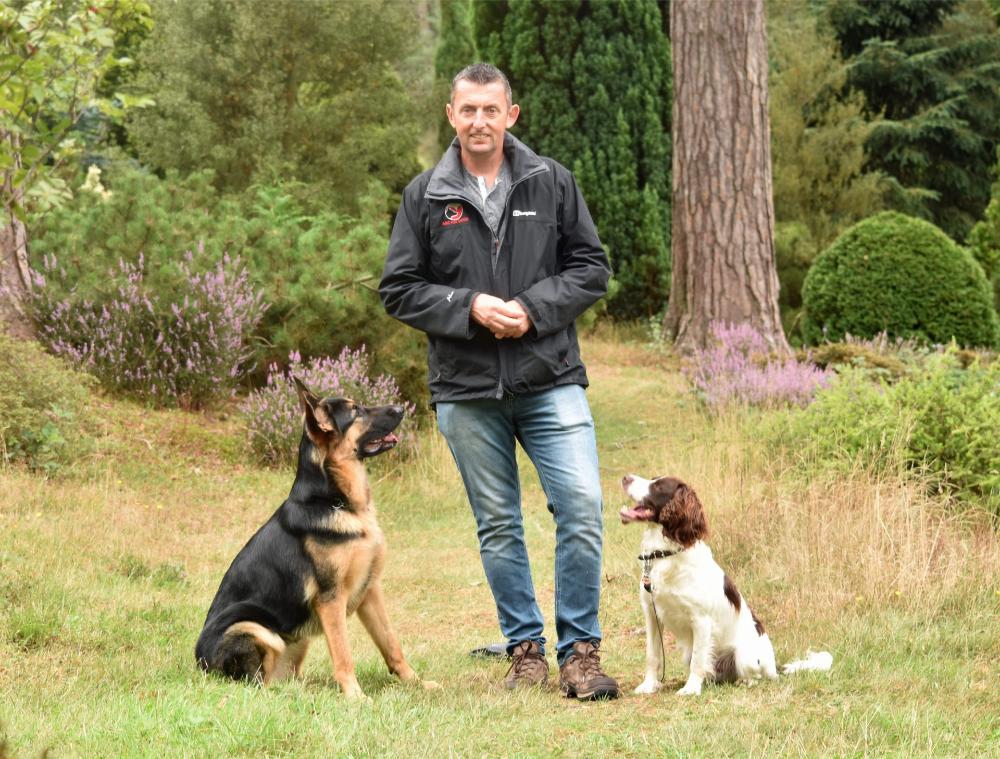The Ultimate Guide to Pet Training: Transform Your Pet's Actions
Reliable pet dog training is important for cultivating an unified partnership between pet dogs and their owners. This overview not just aims to furnish you with the necessary tools to change your dog's habits yet additionally invites you to check out just how these foundational ideas can lead to a deeper connection with your animal.
Understanding Pet Dog Habits
Comprehending canine behavior is vital for efficient training and a harmonious partnership in between dogs and their proprietors. A pet's actions is affected by a mix of genetics, setting, and experiences. Dog training. Identifying these variables permits proprietors to customize their training approaches to fulfill the individual needs of their animals
Canines interact mainly with body movement, articulations, and face expressions. As an example, a wagging tail can suggest enjoyment or happiness, while a tucked tail may signal fear or entry. Observing these cues enables proprietors to react properly, strengthening positive habits and dealing with negative ones efficiently.
In addition, recognizing the social structure of dogs can supply insights right into their actions. Canines are pack animals, and they flourish in an organized environment. Developing regular guidelines and clear limits can avoid complication and promote a feeling of security.
Additionally, recognizing the all-natural instincts of pet dogs, such as the urge to dig or go after, is vital. These instincts can be rerouted via appropriate outlets, such as play or workout. By comprehensively understanding these behavioral elements, proprietors can foster a positive training experience, eventually leading to a well-adjusted and loyal canine friend.
Important Educating Methods
Efficient dog training relies upon a range of crucial methods that can significantly enhance the knowing procedure for both the pet and the owner. One essential strategy is favorable support, which entails gratifying desirable habits with treats, praise, or playtime. This technique urges dogs to repeat the behaviors that result in positive end results, cultivating a trusting connection between the family pet and proprietor.
One more secret technique is consistency in expectations and commands. Using the exact same verbal cues and hand signals helps the dog understand what is called for, minimizing complication and promoting quicker knowing. Furthermore, developing clear limits and guidelines is important for efficient communication.
Socialization is also an important component of training. Revealing pets to various atmospheres, people, and various other animals helps them develop appropriate social abilities and lowers anxiety in strange scenarios.
Last but not least, patience and timing are essential. Educating sessions must be short but constant, making sure that the canine remains involved and receptive. By employing these essential methods, owners can create a favorable and structured training experience that promotes excellent behavior and strengthens the bond with their canine companions.
Producing an Educating Arrange
How can a well-structured training schedule improve a canine's learning experience? A training routine provides consistency, ensuring that pet dogs obtain routine, concentrated direction. This predictability aids canines recognize what is anticipated of them, strengthening their learning and permitting better retention of actions and commands.
When creating a training routine, it is vital to consider the canine's age, breed, and specific personality. Young pups might gain from much shorter, more frequent sessions, while adult dogs might love longer, much less frequent training periods. Integrating a range of activities can likewise maintain the sessions involving, preventing monotony and promoting enthusiasm for discovering.
In addition, organizing training sessions at specific times of the day can help solidify a regimen. Matching training with daily walks or play can create a positive association with knowing. It is likewise important to include time for support, such as treats or appreciation, to compensate wanted actions without delay.
Last but not least, flexibility is key. While uniformity is essential, being adaptable to the pet's mood or energy level can improve their understanding experience. A well-crafted training schedule ultimately lays the foundation for reliable interaction and a stronger bond between the pet and proprietor.
Typical Training Challenges
Regardless of having a well-structured training schedule, dog proprietors usually encounter numerous obstacles throughout the training process. One common concern is incongruity in hints and commands. When multiple member of the family use various terms or tones, a canine might come to be baffled, hindering its capability to learn effectively.
One more constant obstacle is distraction. Dog training. Dogs are normally interested animals, and external stimuli such as other animals, noises, or individuals can divert their attention throughout see this here training sessions. This requires proprietors to develop a regulated environment or slowly introduce disturbances to strengthen emphasis
Additionally, differing energy degrees can influence training results. High-energy canines may battle to settle down and focus, while more laid-back types could useful site need added inspiration to engage. Tailoring the training method to fit the individual pet dog's temperament is necessary for success.

Building a Strong Bond
A strong bond between a dog and its owner is essential for successful training and general wellness. Dog training. This connection promotes trust fund, which is essential for efficient communication throughout the training process. When a canine really feels connected and protected to its owner, it is more probable to react positively to cues and commands
To build this bond, consistency is key. Establishing a routine that includes regular feeding, exercise, and training sessions aids develop a feeling of security. In addition, favorable reinforcement techniques, such as treats, appreciation, and play, enhance wanted actions while enhancing the emotional connection.
Socializing is an additional crucial facet of bond-building. Revealing your pet dog to different environments, individuals, and other animals helps them really feel a lot more certain and comfy, improving the bond with their owner. Involving in tasks together, such as strolling, playing bring, or taking part in obedience training, promotes teamwork and common enjoyment.
Conclusion

Comprehending pet actions is necessary for reliable training and a harmonious connection in between pet dogs and their owners.Efficient pet dog training depends on a variety of vital techniques that can substantially improve the knowing process for both the pet and the owner.Despite having a well-structured training timetable, canine proprietors typically encounter different obstacles during the training procedure.In conclusion, reliable canine training depends on an extensive understanding of canine behavior, the application of vital techniques, and the establishment of a structured training routine. By emphasizing positive reinforcement and consistency, dog proprietors can considerably boost their family pets' actions, ultimately making sure an unified connection and advertising the well-being of both the pet dog and its atmosphere.